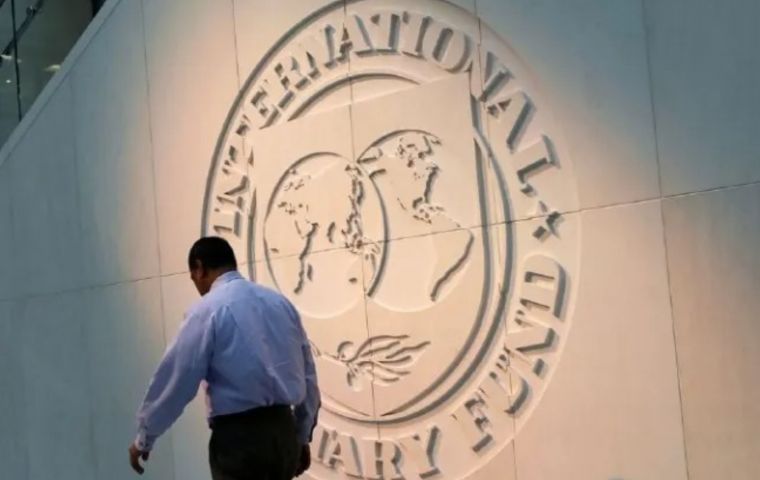MercoPress. South Atlantic News Agency
IMF goes easier on heavily indebted countries such as Argentina
 “I'm pleased to announce that the Executive Board has reached a consensus on a reform of IMF charges and surcharges,” Georgieva stressed
“I'm pleased to announce that the Executive Board has reached a consensus on a reform of IMF charges and surcharges,” Georgieva stressed The International Monetary Fund (IMF) announced Friday a series of cuts on overcharges to countries heavily in debt, which, albeit moderate, could benefit Argentina among other nations. Such an initiative had been resisted in the past by Washington and other G7 nations but things have changed considerably at a global level.
“This policy change, which will be effective from next November 1, means savings for Argentina of approximately $3.2 billion, a 29.1% reduction in the payment of fees and surcharges for the entire current loan,” Argentina's Economy Ministry said in a statement. These savings “will be felt especially during the next 3 fiscal years where the reduction will be of approximately 1.1 billion dollars,” the document went on.
“I'm pleased to announce that the Executive Board has reached a consensus on a reform of IMF charges and surcharges. This will lower borrowing costs for our members by 36 percent while preserving the IMF's financial capacity to support countries in a challenging global environment,” IMF Managing Director Kristalina Georgieva wrote on social media.
The Bulgarian economist also explained that the IMF board concluded Friday's review of the charges and surcharges policy with the approval of a “comprehensive package that substantially reduces the cost of borrowing while preserving the IMF's financial capacity to support countries in need.”
To lower the cost, the IMF will reduce the margin on special drawing rights (SDRs) from 100 to 60 basis points, increase the threshold for surcharges, lower the interest for surcharges applied for temporary issues from 100 to 75 basis points, and increase the thresholds for fees. However, the IMF made it clear that in no way was it considering the overall suppression of fees and surcharges, which are an “essential part” of its risk management scheme.
“While substantially reduced, fees and surcharges remain an essential part of the IMF's credit cooperation and risk management framework, with all members contributing and all able to benefit from support when needed. Together, fees and surcharges cover the cost of credit intermediation, help build reserves to protect against financial risks, and provide incentives for prudent borrowing. This provides a solid financial foundation that enables the IMF to deliver vital balance of payments support on affordable terms to member countries when they need it most,” Georgieva also noted.
The last time the IMF reviewed its charges and surcharges policy was in 2016. The IMF acknowledged that since then interest rates have risen sharply around the world, making borrowing costs more expensive for countries.
Of the 19 countries currently paying surcharges, Benin, Côte d'Ivoire, Gabon, Georgia, Moldova, Senegal, Sri Lanka, and Suriname will cease to do so as of Nov. 1 because of an increase in their borrowing limit. “The projected number of countries subject to surcharges in FY2026 will be reduced from 20 to 13,” the IMF said.




Top Comments
Disclaimer & comment rulesCommenting for this story is now closed.
If you have a Facebook account, become a fan and comment on our Facebook Page!